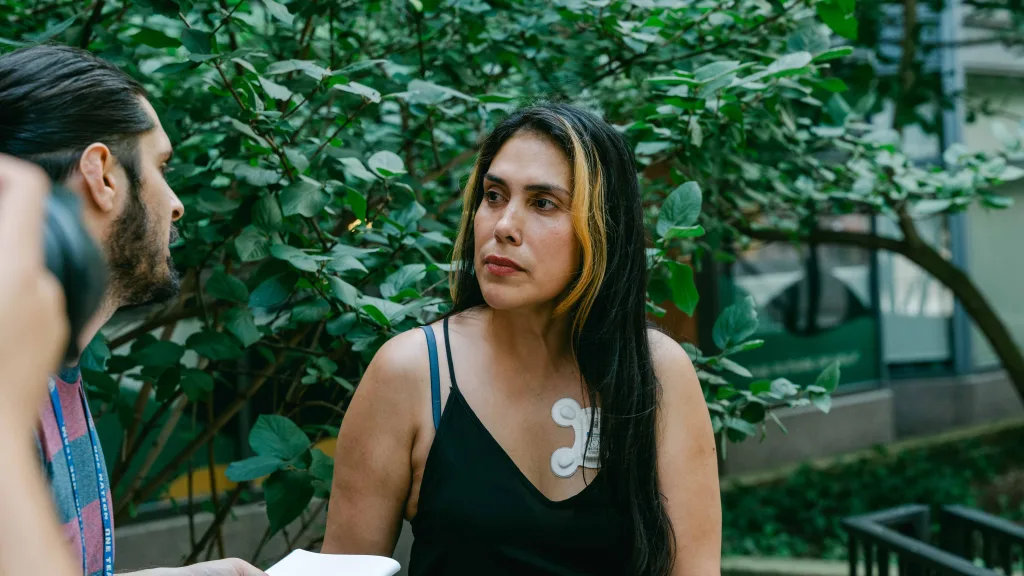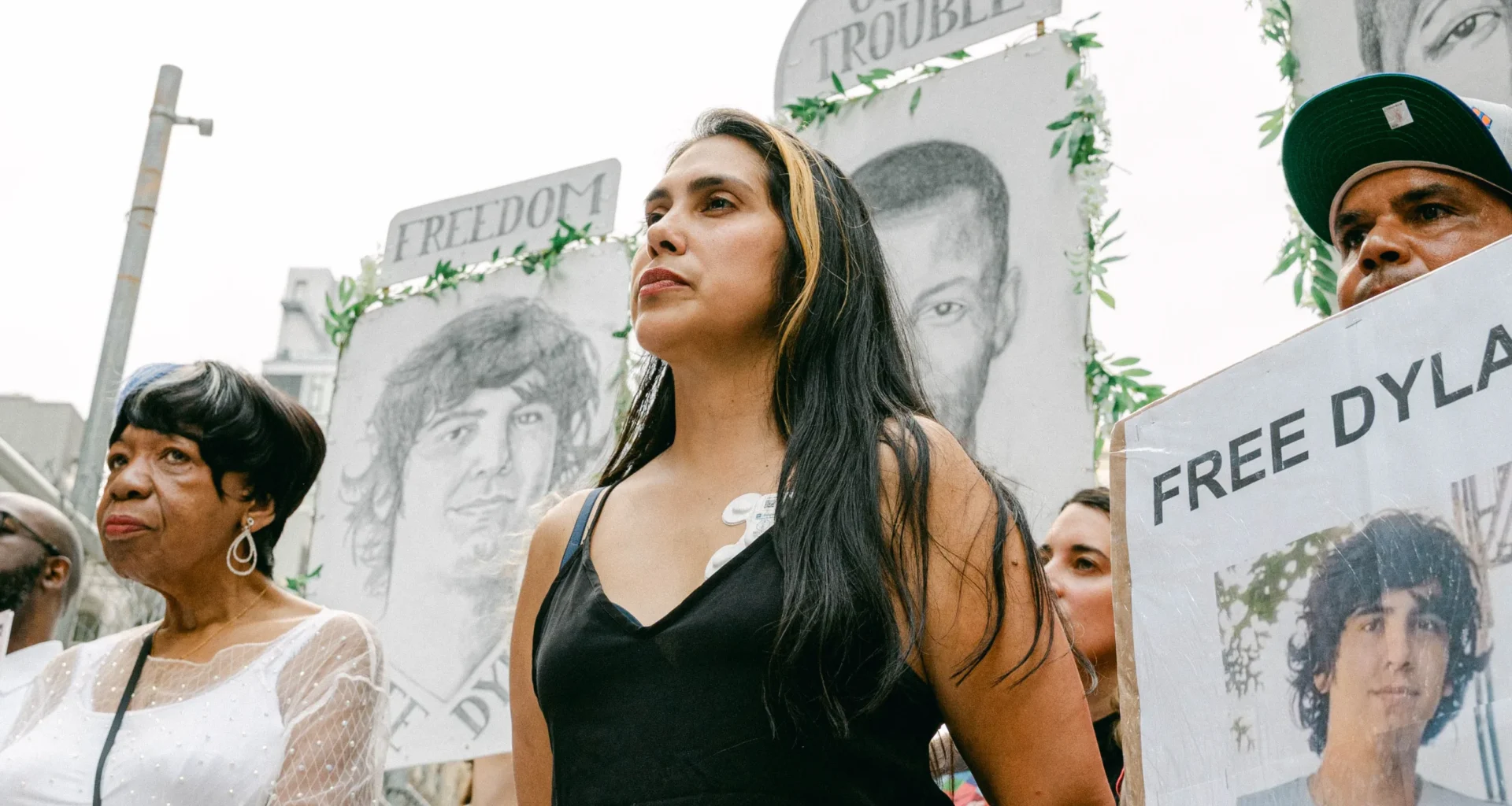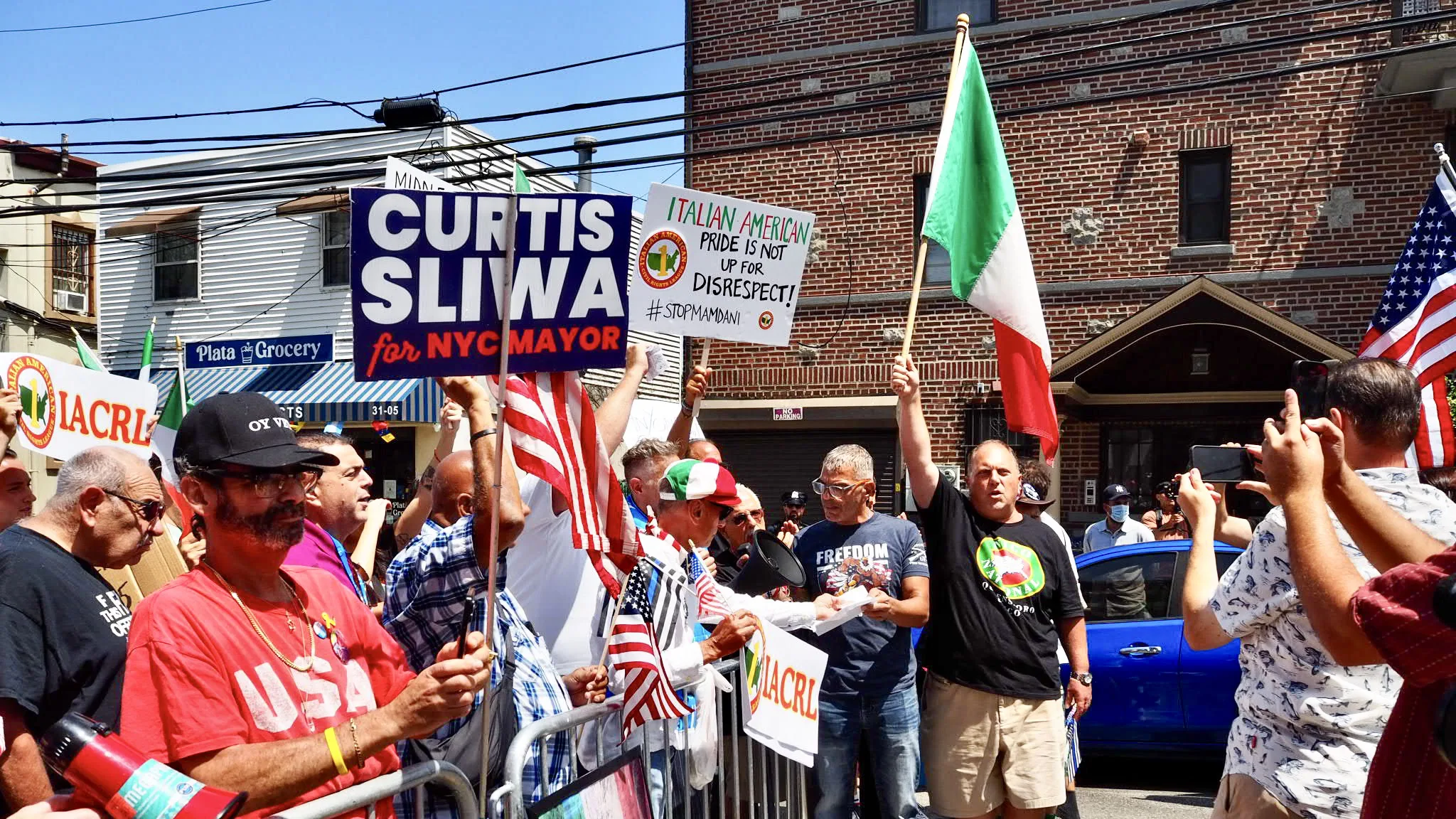The day of her son’s immigration hearing for his asylum case, Raiza accompanied him to the immigration court at 290 Broadway.
Raiza, who requested Documented use of her first name due to privacy concerns, was familiar with being his partner at appointments, which also included medical screenings for her son’s gastrointestinal condition.
“We were inseparable,” she said in Spanish of her 20-year-old son, Dylan Lopez Contreras.
Immigration News, Curated
Sign up to get our curation of news, insights on
big stories, job announcements, and events happening in immigration.

Please check your email for further
instructions.
On the day of the hearing, May 21, she remembers it as an overcast Wednesday morning. Her son, whom she describes as her companion and a father figure to her younger children after their father’s death many years ago, was very hungry and had asked her to get breakfast before the hearing.
“I told him we could eat something after we left [court], that it was a better idea so we could be on time. That we had to be responsible,” she said.
On the train, Raiza teased her son of being hungry and asked him what food he wanted to get, she said. But the topic of breakfast was paused when they arrived at the federal building, and made their way up the elevators.
At the hearing, attorneys for DHS asked the immigration judge to dismiss his case. Without an attorney present, Dylan Contreras believed the case dismissal “would make it easier for him to obtain a green card through the SIJS process,” and did not consider that DHS could put him in expedited removal proceedings, court filings show.
Having completed his appointment at the court on the 15th floor, Raiza and Dylan walked toward the elevators when two men in plainclothes followed them into the elevators. When the elevator reached the lobby, they identified themselves as ICE agents and began handcuffing her son.
The breakfast she had planned for never happened.
“I don’t feel good. I think a lot [about that day],” Raiza told Documented. “Sometimes I start to pray to God and I start to think about the situation that other immigrants, like him, are going through.”
Dylan Lopez Contrera’s arrest on May 21 marked one of the first known cases where asylum seekers were placed in expedited removal proceedings after DHS lawyers asked the courts to dismiss their cases — a tactic that has been implemented by the Trump administration to deliver on his promises of mass deportation.
Also read: Josue Lopez Was Set to Graduate High School on May 21 — Instead, ICE Deported Him to El Salvador
Although a judge granted a motion to reconsider the improper dismissal of Dylan’s asylum case, and while another high schooler was released last week, Dylan remains detained, separated from his family. His mother and advocates have continued to fight for his freedom, calling his detention unjust and emblematic of the Trump administration’s broader, more aggressive immigration enforcement policies.
Two months after his arrest, Raiza still does not understand why her son was detained.
“[ICE] says that they are going for people who are criminals. So why are they going against us?” she said, adding that it feels more like discrimination and that everyone is being targeted. “If he had a criminal background, he wouldn’t have shown up. When someone has a criminal background they do not even get near the building. We went there because we have followed the law; we do not owe anything; we have not done anything wrong.”
According to court filings filed on May 29 by Dylan’s counsel, The New York Legal Assistance Group, the 20-year-old Bronx student does not have a criminal record and entered the United States through Laredo, Texas, on May 1, 2024, using the CBP One digital app — a fact directly contradicting DHS’ claim on X that Dylan was an “illegal alien from Venezuela who illegally entered the U.S. more than one year ago.”
After joining his family in New York, Dylan obtained his driver’s license and his Real ID once he was granted work authorization which he used to work part-time as a food delivery driver to help his mom and his younger siblings, ages 7 and 15.
“He is their big brother but [the siblings] see him as a father figure, you know? They look up to him,” said Power Malú, who runs the organization ROCC NYC, also known as Artist Athletes and Activists. Malú has known the family since before the detention and has been helping Raiza with case management, advocacy and emotional support.
“He was working to help them so that they did not have to be in a shelter. They wanted not to be in a homeless situation and so he was sacrificing. This is the type of kid that he is. He is a family man,” Malú said, adding that his organization was contacted by the guidance counselor of the English Language Learners and International Support Preparatory Academy (ELLIS Prep), a preparatory school in the Bronx where Dylan attended.
What is most difficult for Raiza is answering the question of where her son is to her younger children, she said, especially given the complexity of how the immigration system works. “[Dylan’s siblings] ask me why he is not home, why he is not eating with us at the table, and when he will be back. The young one often asks me: ‘Is he having a bad time?’ and I tell him no, that he will be back soon.”
On June 16, a federal judge granted Dylan the motion to reconsider the dismissal of proceedings, and reinstated his pending asylum case and pursuit of protections under the Special Juvenile Immigration Status (SJIS).
“The motion was granted after audio recording from his original hearing revealed the government failed to properly inform Dylan — who appeared pro se without a lawyer at the time — about the full consequences of the dismissal of his asylum hearings, and that the government potentially misled him of options he had after dismissal, which directly laid the groundwork for his imminent arrest,” NYLAG said in a press release.
‘A kidnapping’
 Raiza speaking with a reporter, her heart monitor on display. Photo: Rommel H. Ojeda for Documented.
Raiza speaking with a reporter, her heart monitor on display. Photo: Rommel H. Ojeda for Documented.
When asked about the past two months since her son’s detention, Raiza’s eyes filled with tears. She paused, then coughed to clear the lump in her throat before answering: “I couldn’t do anything to help him,” she said, wiping tears away with her hand. She said she thinks of him every single day: “It is a situation about stress and anxiety. You do not feel comfortable and you cannot work because you get distracted because you start thinking about the things that could happen to him [while detained].”
Knowing that her son is detained has also caused her depression and stress. She points to a white, heart monitor she wears on her chest. “The doctors put it on me a couple of days ago, so that I can keep track of the strong pain I feel and the fast palpitations,” she said. “I am suffering from anxiety and I have insomnia due to everything that is happening.”
When Raiza calls the detention center in Pennsylvania, where her son is detained, she said her son tries not to worry her. “But I know my son — and he does not want to tell me that he is not doing well, though I can tell he is not. It was not a long time ago that they gave him bad food and he said: ‘Don’t worry mom, it will be something else later.’ ”
Sometimes when the phone call drops, she said her mind wonders if something has happened to him.
She said many people have sent him letters, wishing him well, but that he has only received around two or three letters. She said she highly worries about the conditions in the detention center and how it will impact his health. Since arriving in the U.S., her son “experienced serious, chronic medical problems, including persistent fevers and gastrointestinal issues,” court documents show, adding: “These specialists are currently in the process of assessing whether Dylan’s symptoms are the result of cancer or Crohn’s disease.”
But beyond her son’s release, she said she feels for everyone being detained at the moment, especially individuals who cannot get the same support that she has been getting. “It is a very desperate situation for everyone. For everyone. This is like a global nightmare, I would say,” she said, adding that she feels gratitude towards those who have helped her — including the school’s guidance counselor and the principal.
Raiza said that when she heard that Queens High Schooler, Joselyn Chipantiza Sisalema, was released from ICE custody, she was filled with hope. “I have faith in God and I know that God allows things to happen for a reason. I keep my faith with him and know that he will protect my son.”

